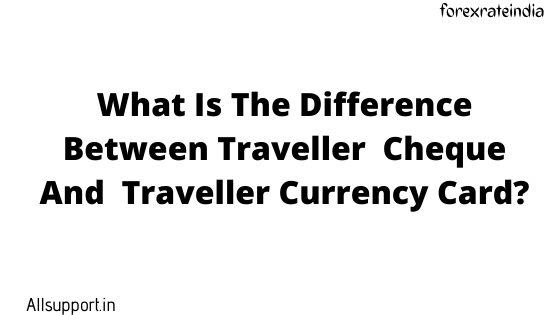What Is a Traveler’s Check?
A traveler’s check is a once-popular but now largely outmoded medium of exchange utilized as an alternative to hard currency. The product typically is used by people on vacation in foreign countries. It offers a safe way to travel overseas without cash. The issuing party, usually a bank, provides security against lost or stolen checks. Beginning in the late 1980s, traveler’s checks have increasingly been supplanted by credit and prepaid debit cards.
How a Traveler’s Check Works:
A traveler’s check is similar to a regular check because it has a unique check number or serial number. When a customer reports a check stolen or lost, the issuing company cancels that check and provides a new one.
A traveler’s check is for a prepaid fixed amount and operates like cash, so a purchaser can use it to buy goods or services when traveling. A customer can also exchange a traveler’s check for cash. Major financial service institutions issue traveler’s checks, and banks and credit unions sell them, though their ranks have significantly dwindled today. They often come with a 1% to 2% purchase fee. Companies that do still issue them today include American Express, Visa, and AAA.
Traveler’s cheque is a medium of exchange that can be used in place of hard currency. They can be denominated in one of a number of major world currencies and are preprinted, fixed-amount cheques designed to allow the person signing it to make an unconditional payment to someone else as a result of having paid the issuer for that privilege.
Traveller’s cheque is the oldest method of carrying out forex transactions. It is available and acceptable in all major currencies.
he financial institutions issuing traveler’s cheques earn income in a number of ways. Firstly, they would charge a fee on sale of such cheques. In addition, they can earn interest for the period that the cheques are uncashed, while not paying any interest to the cheque holder, making them effectively interest-free loans. Also, the foreign exchange rate commonly used on traveler’s cheques (generally based on rates applicable at the time of purchase) is less favourable compared to other forms of obtaining foreign currency, especially those on credit card transactions (which use a rate applicable at the statement date). On the other hand, the set up cost and the cost of issuing and processing traveler’s cheques is much higher than for credit card transactions. The cheque issuer carries the exchange rate risk, and would normally pay a fee to hedge against the risk.
Their use has been in decline since the 1990s, when a variety of more convenient alternatives, such as credit cards, debit cards, pre-paid currency cards and automated teller machines, became more widely available and were easier for travelers to use. Traveler’s cheques are no longer widely accepted and cannot easily be cashed, even at the banks that issued them. The alternatives to traveler’s cheque are generally cheaper and more flexible. Travel money cards, for instance, offer similar features to traveler’s cheques but offer greater ease and flexibility.
The Traveller’s Cheque is a Mode Of Payment wherein you have Pre-Loaded the Amount in your Account that Provides you the Prerogative of the Cheques so wherever they are Acceptable you can Honour your Payments by a Cheque upto the Specified Amount (Often 98% of the Pre-Loaded Amount) and the Holder may Issue them to Settle His Hotel, Airline or Shopping Bills. Traveller’s Card or Casually called Travel Card is sort of a Debit Card with even more Acceptance than the Travellers Cheque and can help you buy virtually everything. Besides they are available in Multiple Currencies and you can use it any place you want as eversince the prolific advancement in Globalization their Acceptance Across various Segments have Proliferated and you get things done Cashlessly. The Medium does nit Hold any Difference but the Card has and Edge with Security and Flexibility over Cheques. Cheers!
Advantages of using traveller’s cheque are that in case of loss or theft they cannot be used by others and also they offer better exchange rates than cash. They even don’t have expiry dates.
Disadvantages of using TC’s is that they can be encashed only at a limited number of authorized dealers and if if there’s a signature mismatch, travellers cheques gets rejected.
Traveller’s Currency card also termed as forex travel card is the most convenient and secured way to carry money abroad when travelling. It is safe because it comes with chip and pin technology.
Advantages of using traveller’s currency card are offer better exchange rates than cash, replacement card option available in case of loss or theft, lock currency exchange rates before you travel overseas.
Disadvantages includes some countries allow limited withdrawals and some banks may even charge withdrawal fees.
